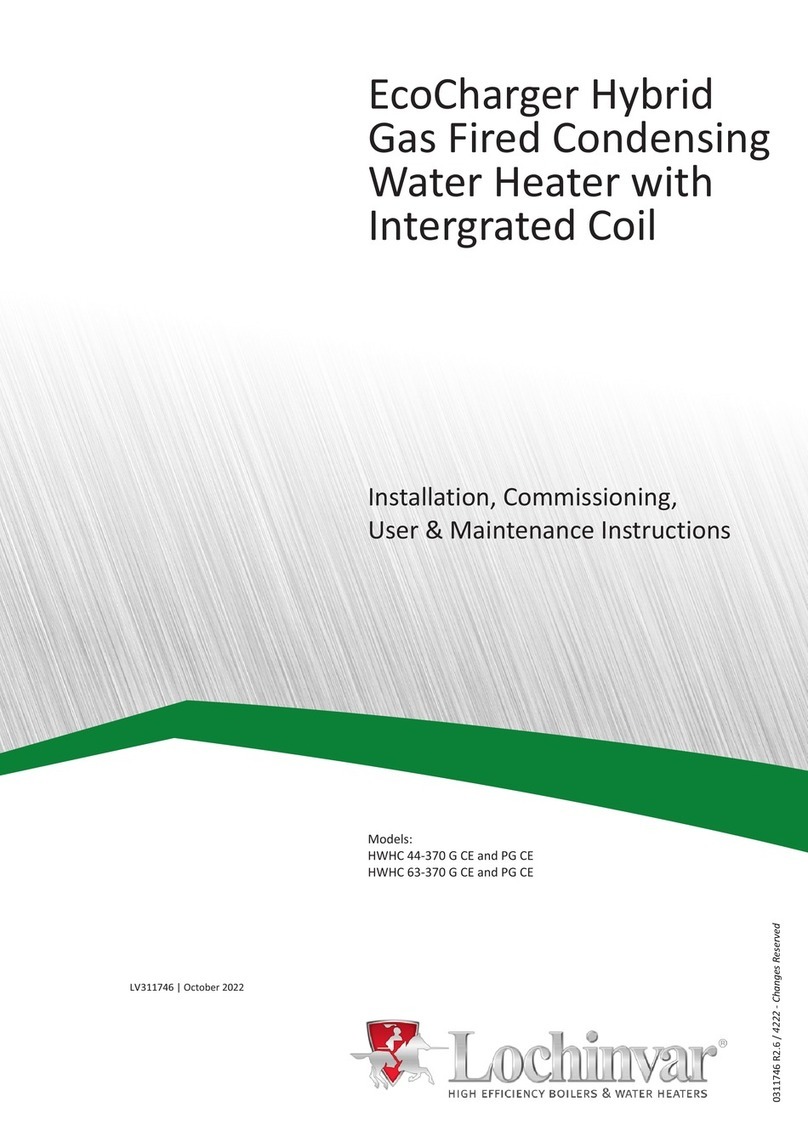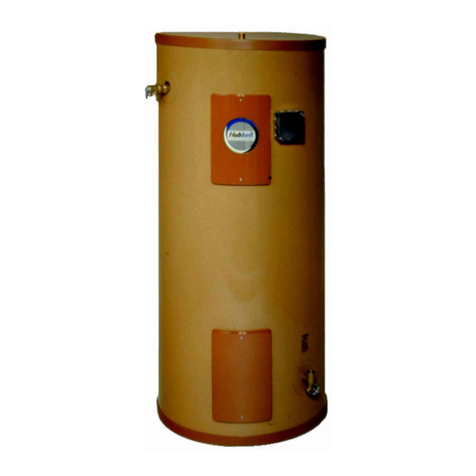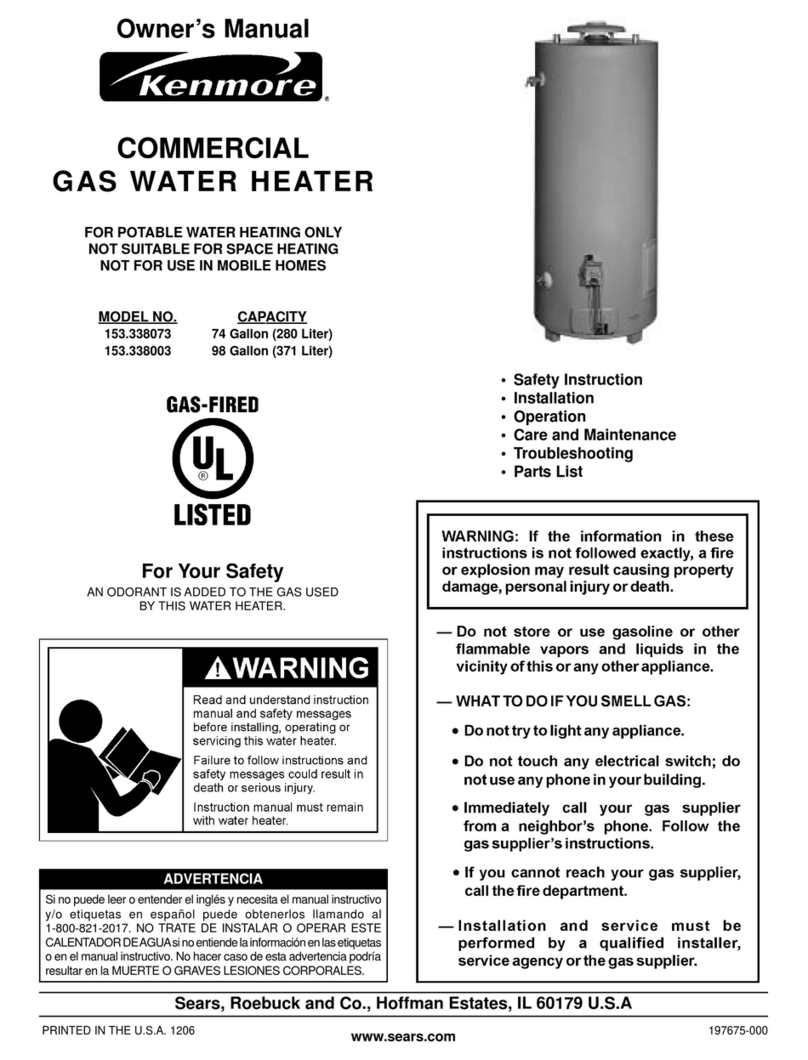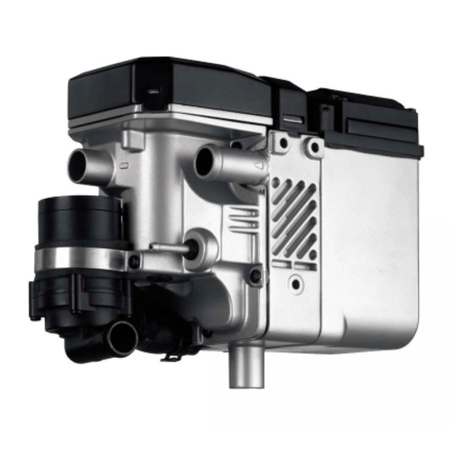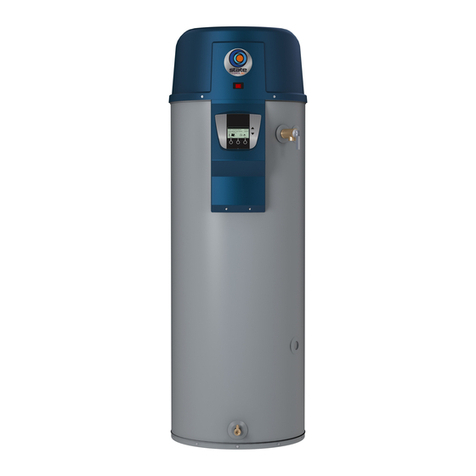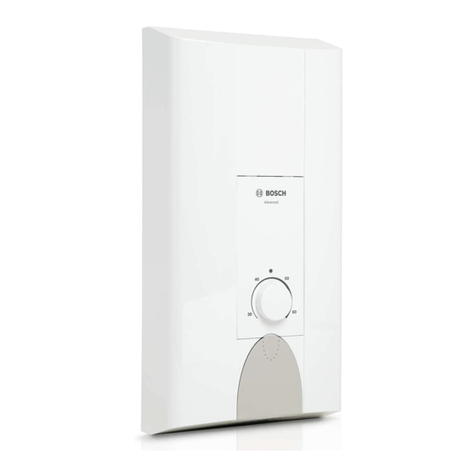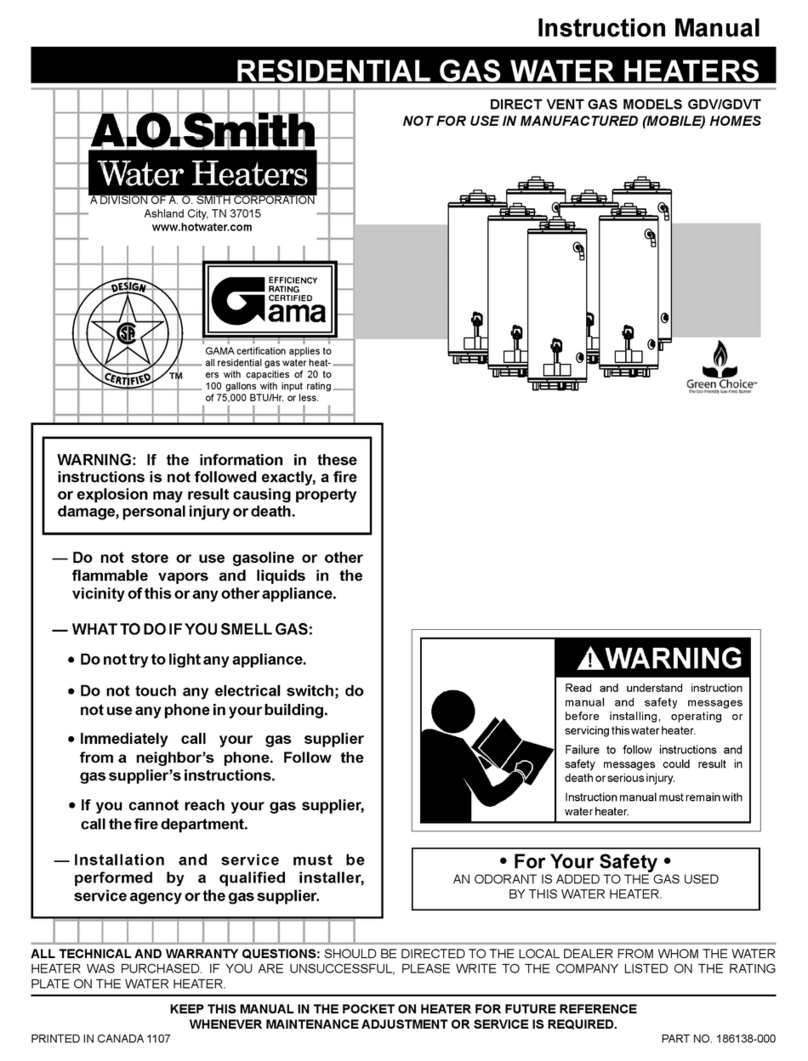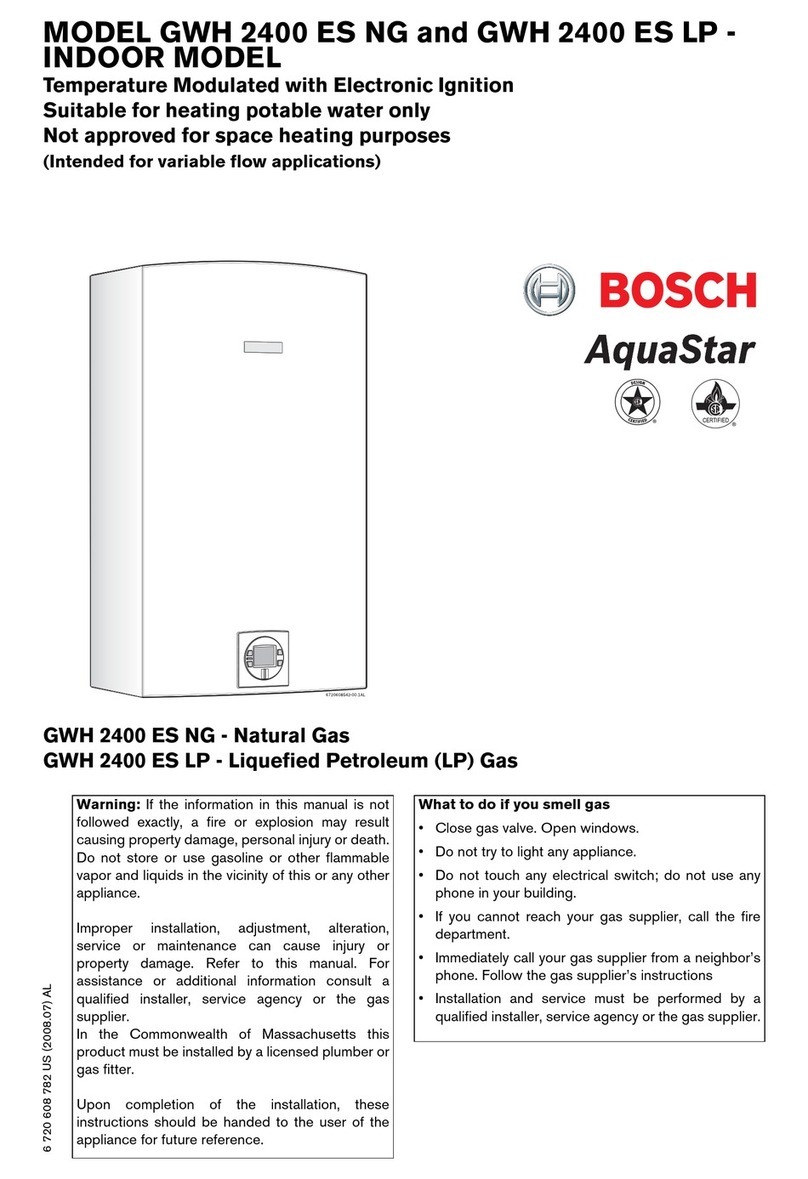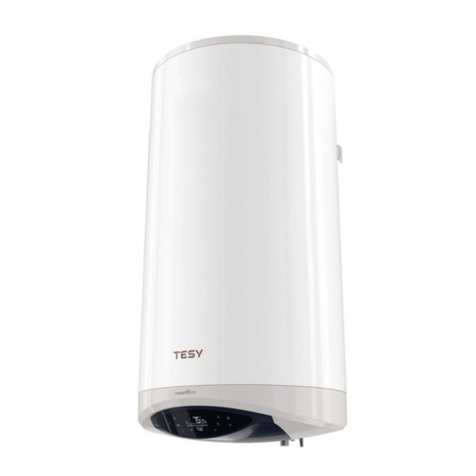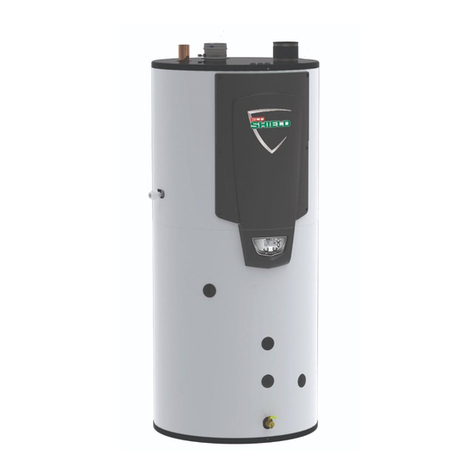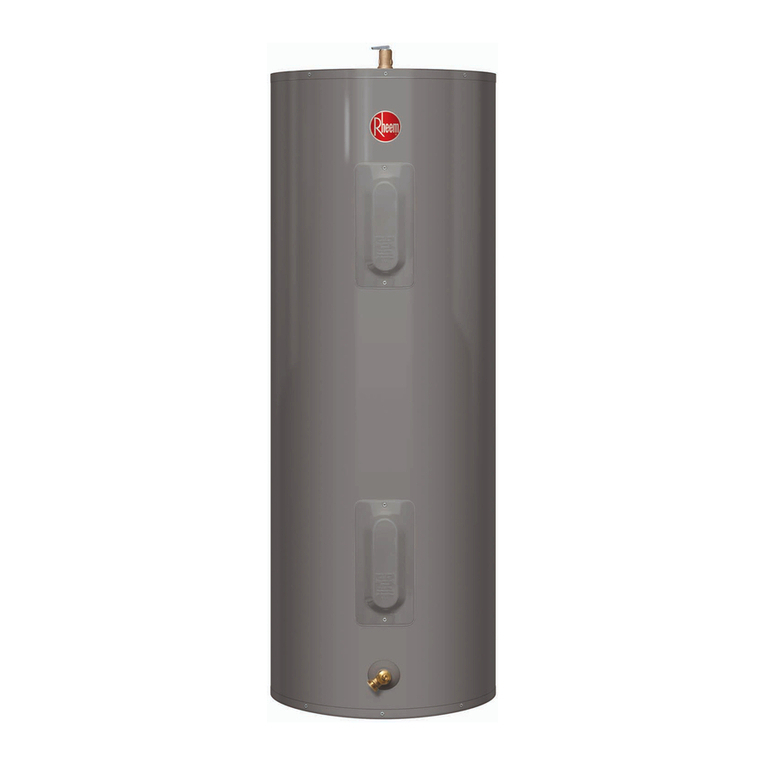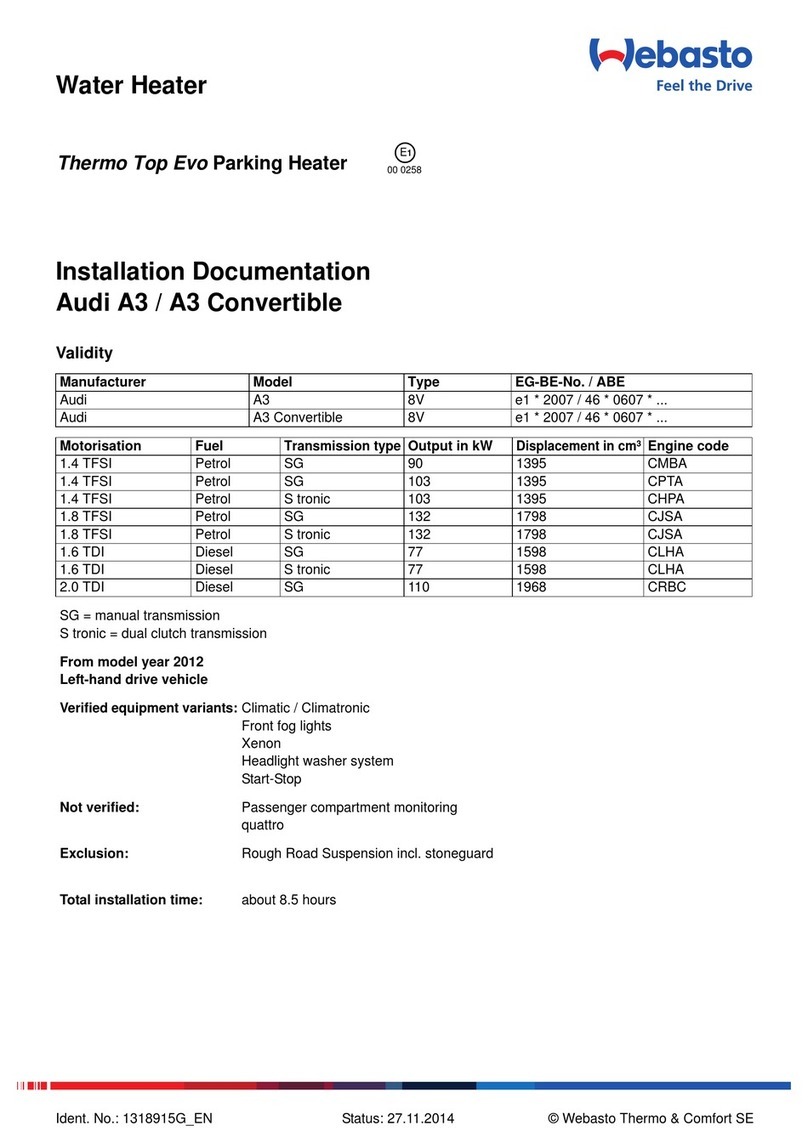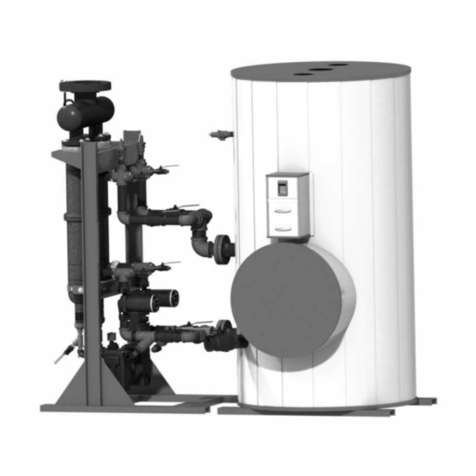
8
Maintenance
The functionality of pressure safety valves, that Solarico recommends to be installed , must be periodically
tested.
The water may drip from the discharge pipe of the pressure-relief device and that this pipe must be left
open to the atmosphere.
The pressure-relief device is to be operated regularly to remove lime deposits and to verify that it is not
blocked.
There is no need UniQube storage tanks to be maintained of corrosion, due to its corrosion resistant
materials.
Routine Preventive Maintenance
Properly maintained, your water heater will provide years of dependable trouble-free service.
Routine preventive maintenance program should be established and followed by the user. If electric heater
is used, It is recommended that a periodic inspection of the operating controls, heating element and wiring
should be made by service personnel qualied in electric appliance repair.
1. At least once a year, manualy turn “on” the temperature pressure relief valve, located on the “Heating
Out” line, to make certain the valve operates freely and allow few liters to ush through discharge line.
Make certain the discharged water is directed to an open drain.
DANGER: Before manually operating the relief valve, make certain no one will be ex-
posed to the danger of coming in contact with the hot water released by this valve. The
water may be hot enough to create a SCALD hazard. The water released should be
directed to a suitable drain to prevent injury or damage.
!
NOTE: If the temperature and pressure relief valve on the water heater discharges
periodically, this may be due to thermal expansion in a “Closed” water system. Contact
the water supplier or your plumbing contractor on how to correct this. DO NOT plug the
relief valve outlet.
!
2. There is a possibility water heater’s tank can act as a settling basin for solids suspended in the water of
heating circuits. It is, therefore, not uncommon for hard water deposits to accumulate in the bottom of the
tank. It is suggested that a few liters of water be drained from the water heater’s tank every month to clean
the tank of these deposits. Depending on how much deposits are there during rst few months of cleaning,
you can change the frequency of cleaning.
3. Rapid closing of faucets or solenoid valves in automatic water using appliances can cause a pound-
ing “water hammer” sound. “Water hammer” can be described as a banging noise heard in a water pipe
following an abrupt alteration of the ow with resulting pressure surges. Strategically located risers in the
water pipe system can be used to minimize the problem. Also water hammer arresting devices are usually
available from your plumber or local plumbing supply store.
If you use electric heater back up:
4. Most electrical appliances make some sound when in operation, even when new. If the hissing or sing-
ing sound level increases excessively, the electric heating element may require cleaning. Contact your
installer or plumbing contractor to inspect.
5. The area near the water heater must be kept free of ammable liquids such as gasoline or paint thin-
ners, adhesives or other combustible materials.
GENERAL INFORMATION




















